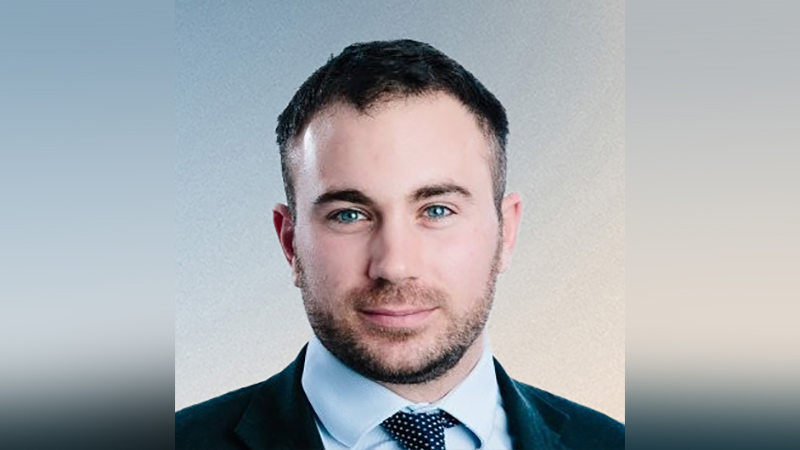There are approximately 32,000 regulated financial advisers practicing in the UK, according to the FCA. If each adviser has 100 regular clients that visit at least once annually, then 3.2 million financial planning conversations are happening every year.
These conversations represent an incredible opportunity to impart knowledge relating to sustainability; an opportunity that surely needs to be grasped.
Yet, on the whole, financial planners are utilising models and assumptions that take little account of the physical or transitional risks associated with climate change.
Clients are therefore disempowered to make important decisions that will impact both their own financial future, and their impact on the wider world.
If we can change financial planning conversations, we have the opportunity to change millions of investment and financial decisions – and, of course, our clients’ lives – for the better.
What’s happening now
Being a financial adviser is a privilege. You support clients through some of the biggest moments and decisions in their life, and ultimately hope to enhance the wellbeing of them and their family.
Fiduciary duty dictates we put clients’ best interests first – but it goes beyond ‘duty’. We build long-lasting relationships built on trust, often becoming a key part of client’s lives.
Of course, none of us are fortune tellers. All financial plans are based on assumptions, and assumptions will never be fully accurate. We do, however, have a duty of care to ensure the assumptions we present to clients are fair and reasonable.
So, when we present long- and even medium-term financial plans that ignore the overwhelming evidence of likely climate impact – both to our world and the economy – are we really presenting a fair and reasonable assumption?
Our clients are not financial-services professionals. They don’t want to hear vocbulary about “transition risks” or “assessments of capacity for loss.” But we surely have a duty to communicate climate risks – and, equally, the opportunities presented by a more sustainable future.
Are our financial planning conversations under-representing a critical risk? Are we overlooking a factor that is affecting our duty to protect clients’ interests?
An opportunity for growth
What could better financial planning conversations look like?
Firstly, we do what we’re good at – understanding clients’ situations and goals.
Not every client will rate ‘sustainability’ as their top priority in this initial assessment. In fact only a very small proportion will. That’s quite OK. We need to engage the broadest possible client base to effect maximum impact.
We can, however, introduce sustainability into the equation at an early stage. We are, after all, there to advise clients – and sustainability factors are clearly important. Clients are generally open to new ideas in planning conversations, and particularly concepts with clear relevance to their goals.
In fact, according to the ONS, 64% of adults in the UK feel worried about climate change. Few may have immediately considered how their financial plan might align with these concerns, but many will be very open to exploring once introduced by their financial adviser.
Climate change is a big and scary topic, so we need to be sensitive regarding the information we provide. It can also be complicated and technical. But, that’s what financial advisers are particularly good at; balancing sensitivity and technicality.
By introducing sustainability into financial planning conversations, we then create a significant opportunity for growth and exploration of opportunity.
Sustainable financial planning
Sustainability should no longer be positioned as the ‘alternative’. It should be introduced as the ‘default’.
Why? Well, sustainability is no longer merely a moral choice, but a clearly prudent one.
“Achieving net zero emissions… could turn an existential risk into the greatest commercial opportunity of our time,” says Mark Carney. It makes complete sense.
We know that climate change may impact life expectancy, global growth, house pricing, home adaptations, future returns, inflation and so much more. To advise clients on their financial futures without factoring in all this potential change could, frankly, be construed as negligent.
Businesses are accelerating their transition journey towards net zero, and financial advisers are ideally positioned to support individuals and families to do so too.
Decisions made within sustainable financial planning conversations may include investment choices, of course, but also lifestyle adaptations such as home energy solutions or changes to carbon-intensive spending or activities.
And of course, it’s not just climate change. Financial planning decisions can also usefully take into consideration the nature crisis, resource consumption, air and water pollution, ocean health, equity and diversity.
Once clients understand how empowered they are, opportunities for change can be found in a great many places.
How we get there
Every financial adviser has the opportunity to evolve their conversations around sustainability, though many find themselves constrained by either their own level of knowledge, their firm’s practices, or limitations of available technology. This can be frustrating.
Making sustainable financial planning the default will ultimately involve broad system change. There’s not necessarily a single new solution. In fact, we will need change to come in a great many forms.
However, every individual conversation helps. And the direction of travel is critical.
If you’re an adviser having regular interactions with clients, could you do more to introduce sustainability into the conversation? Or what might enable you to? Where might these conversations lead?
Sebastian Elwell is a chartered financial adviser, founder of registered B Corp Switchfoot Wealth, SOLLA advisory board member and chair of STEP Surrey.








